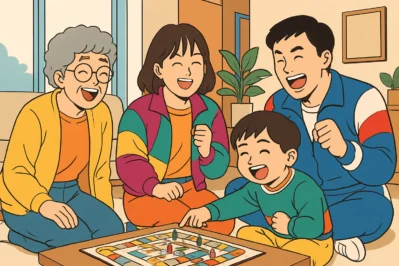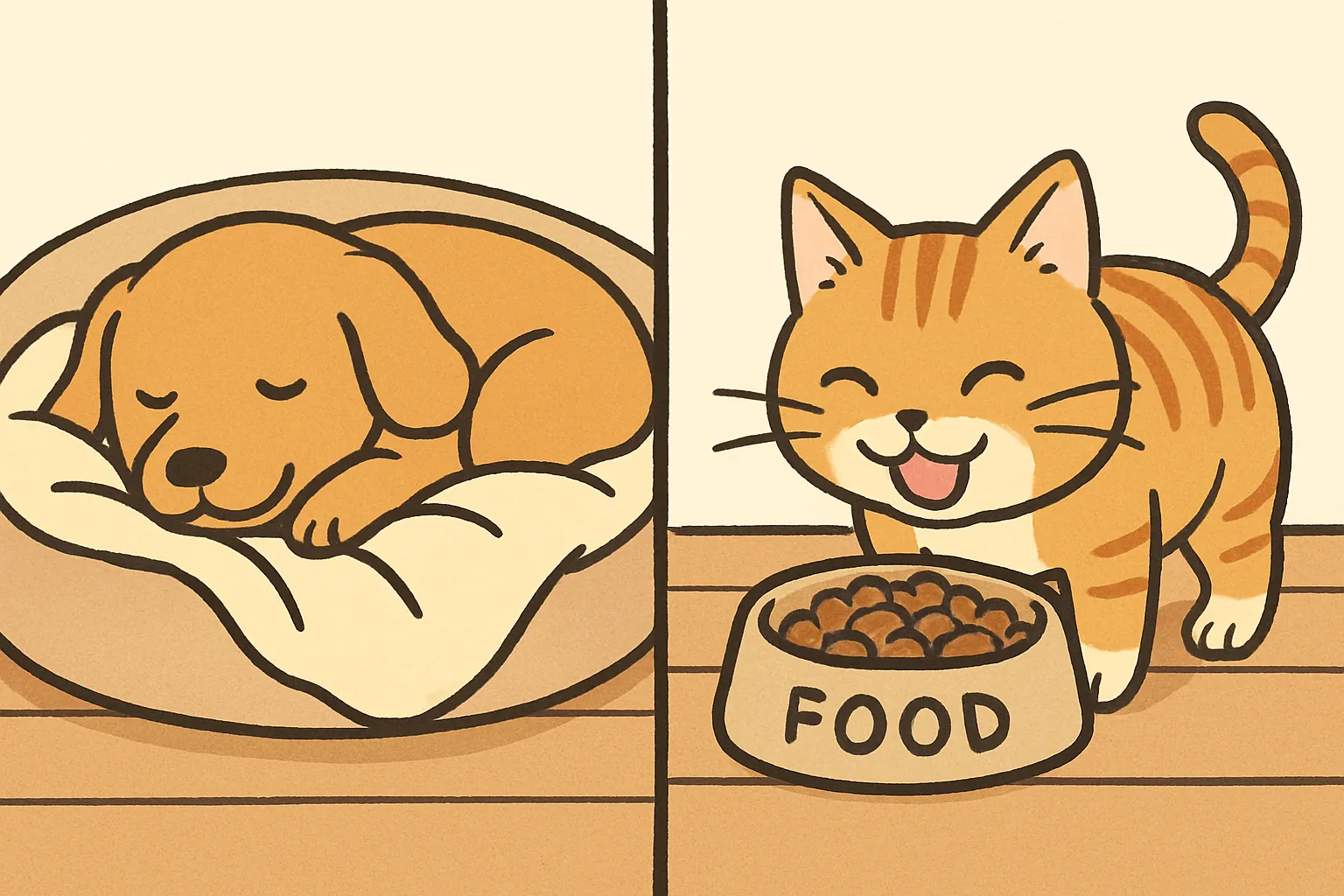Hello! Welcome to [Maeil Hangul], where we upgrade your Korean skills every day!
Have you ever been asked by a Korean friend, “What do you do for Christmas?” or “Do you have any special family traditions?” Today, we’ll learn how to talk about those unique and special traditions your family has. This will be super useful when making friends and sharing your culture in Korea!
Lately in Korea, there’s a huge “Newtro” (뉴트로) trend, which is a mix of “New” and “Retro.” People are loving old-school vibes but with a modern twist! This trend isn’t just for cafes and fashion; it’s also about how families celebrate special days, creating new, fun traditions. Let’s learn how to talk about ours!
Core Expressions You Need to Know
Here are three essential expressions to share your family’s special stories.
1. 한국어 표현: -마다 (mada)
* 발음 [Romanization]: ma-da
* 영어 뜻: Every / Each
* 상세 설명: This is a particle you attach directly to a noun (like a time, place, or person) to mean “every.” It’s perfect for talking about recurring events or traditions. For example, 생일마다 (saeng-il-mada) means “on every birthday,” and 주말마다 (ju-mal-mada) means “every weekend.” It’s a simple but powerful way to describe a consistent routine.
2. 한국어 표현: -곤 했어요 (gon haesseoyo)
* 발음 [Romanization]: gon-haess-eo-yo
* 영어 뜻: Used to (do something)
* 상세 설명: This grammar pattern is used to talk about something you habitually did in the past but don’t necessarily do anymore. It adds a touch of nostalgia. You attach it to a verb stem. For example, 어렸을 때 할머니 댁에 가곤 했어요 (eoryeosseul ttae halmeoni dege ga-gon haesseoyo) means “I used to go to my grandma’s house when I was young.”
3. 한국어 표현: 빼놓을 수 없다 (ppaenoeul su eopda)
* 발음 [Romanization]: ppae-no-eul su eop-da
* 영어 뜻: Can’t be left out / It’s essential
* 상세 설명: This phrase literally means “cannot be taken out.” You use it to emphasize that something is an indispensable, absolutely necessary part of an event or experience. If you’re talking about a Christmas party, you might say, “Mariah Carey’s songs are essential!” (머라이어 캐리 노래는 빼놓을 수 없죠!).
Example Dialogue
Let’s see how these expressions work in a real conversation between two friends, Minjun and Chloe.
A: 민준 (Minjun): 클로이 씨, 추석 연휴에 뭐 했어요?
(Chloe, what did you do during the Chuseok holiday?)
B: 클로이 (Chloe): 저희 가족은 주말마다 같이 보드게임을 해요. 이번 추석에도 특별한 보드게임을 했어요.
(My family plays board games together every weekend. We played a special board game this Chuseok, too.)
A: 민준 (Minjun): 와, 재미있겠네요! 저희는 어렸을 때 다 같이 송편을 만들곤 했어요. 요즘은 그냥 사서 먹지만요.
(Wow, that sounds fun! My family used to make songpyeon (rice cakes) together when I was young. Nowadays we just buy them, though.)
B: 클로이 (Chloe): 송편도 좋죠! 저희 가족 명절에는 맛있는 음식을 빼놓을 수 없죠. 특히 저희 아버지가 만든 갈비찜이 최고예요!
(Songpyeon are great, too! For our family holidays, delicious food is essential. My dad’s Galbi-jjim (braised short ribs) is the best!)
Culture Tip & Trend Analysis: The “Newtro” Family Tradition
As we mentioned, the “Newtro” (뉴트로) trend is huge. But what does it mean for families?
Instead of just following old, formal traditions, many young Korean families are creating their own “Newtro” versions. For example, instead of the traditional Chuseok ceremony (차례), a family might go on a “retro-style” camping trip like they did in the 80s, or visit an old, classic restaurant that their parents used to go to on dates.
You can see this on popular Korean TV shows like “The Return of Superman” where celebrity dads create unique weekly traditions with their kids. They might have a “dress-up-like-your-favorite-K-pop-idol day” or a “make-your-own-tanghulu (탕후루) day.”
So, when you share your family tradition, you can say it’s your family’s unique style! For example: “우리 가족만의 뉴트로 스타일이에요.” (Uri gajok-man-ui nyuteuro seutail-ieyo) – “It’s our family’s own ‘Newtro’ style.” This will make you sound super trendy and culturally aware!
Let’s Wrap It Up & Practice!
Great job today! We learned how to share our special family traditions using three key expressions:
* -마다 (every)
* -곤 했어요 (used to…)
* 빼놓을 수 없다 (is essential)
Now it’s your turn to practice!
Practice Question: Think about a special day for your family (like a birthday, New Year’s, or a holiday). What is one thing that is absolutely essential for that day? Fill in the blank below!
우리 가족의 [특별한 날]에는 [이것]을/를 빼놓을 수 없어요.
(On my family’s [special day], we can’t leave out [this thing].)
Leave your sentence in the comments below! We’d love to hear about your family’s unique and special traditions. Keep up the great work






